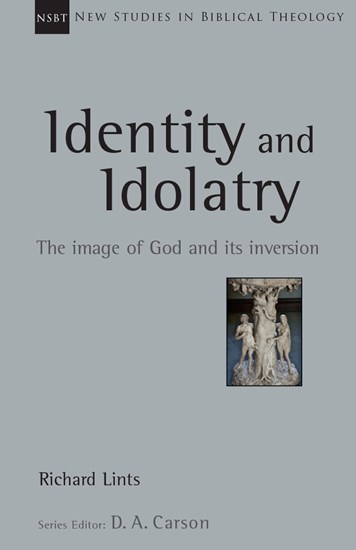
|
Identity and Idolatry
ebook
|
- Length: 192 pages
- Published: August 10, 2015
- Imprint: IVP Academic
- Item Code: 9849
- ISBN: 9780830898497
-
Other Retailers:
Amazon*
*affiliate partner
-
paperback
One of Desiring God's Top 15 Books
"So God created man in his own image, in the image of God he created him; male and female he created them." (Genesis 1:27)
Genesis 1:26-27 has served as the locus of most theological anthropologies in the central Christian tradition. However, Richard Lints observes that too rarely have these verses been understood as conceptually interwoven with the whole of the prologue materials of Genesis 1. The construction of the cosmic temple strongly hints that the "image of God" language serves liturgical functions.
Lints argues that "idol" language in the Bible is a conceptual inversion of the "image" language of Genesis 1. These constructs illuminate each other, and clarify the canon's central anthropological concerns. The question of human identity is distinct, though not separate, from the question of human nature; the latter has far too frequently been read into the biblical use of image.
Lints shows how the "narrative" of human identity runs from creation (imago Dei) to fall (the golden calf/idol, Exodus 32) to redemption (Christ as perfect image, Colossians 1:15-20). The biblical-theological use of image/idol is a thread through the canon that highlights the movements of redemptive history.
In the concluding chapters of this New Studies in Biblical Theology volume, Lints interprets the use of idolatry as it emerges in the secular prophets of the nineteenth century, and examines the recent renaissance of interest in idolatry with its conceptual power to explain the "culture of desire."
Addressing key issues in biblical theology, the works comprising New Studies in Biblical Theology are creative attempts to help Christians better understand their Bibles. The NSBT series is edited by D. A. Carson, aiming to simultaneously instruct and to edify, to interact with current scholarship and to point the way ahead.
"In Identity and Idolatry, Richard Lints shows himself to be an exceptional thinker who combines the sensitivities of a theologian with that of a philosopher and interpreter of the Bible. He not only speaks of ideas in the abstract but shows how these ideas forge the way we think and act. I recommend this book to all thoughtful Christians."
"Begin with the imago Dei. . . . Work that out across the canon, and you discover that light shines on many topics, not least the nature of idolatry. This book manages to blend some elements of systematic theology with careful biblical theology to produce a study that is wonderfully evocative."
"I am grateful that Lints wrote this book, and I commend it to others for a better understanding of this significant issue of the image of God and idolatry. The rich themes of the book have significant practical implications for Christians."
"This is an outstanding read and I heartily recommend it to you. Rather than treating various aspects of human nature as so many other theological anthropologies do (body, soul, spirit, mind, emotions, will, et al.), this is a thorough treatment of human identity from the angles of systematic and biblical theology. It's about who we are versus what we are."
"Lint's placement of imago Dei as a main theme of biblical theology is appreciated. One cannot read the history of redemption without being moved at the inversion of mankind’s purpose. Created to reflect God's glory, mankind now reflects his own humanity in dead idols. Thanks be to Christ Jesus who righted this inversion by his sinless life. Lints' warning against the modern church's own consumeristic idolatry is welcomed. May God rescue us from the unsatisfying, unfulfilling, 'plastic narratives' of our times through the power of the gospel."
CONTENTS
Series Preface
Author's Preface
Abbreviations
1. Living inside the text: canon and creation
2. A strange bridge: connecting the image and the idol
Getting started on the wrong foot: creation and image
Human identity and human nature
3. The liturgy of creation in the cosmic temple
The first stable as prologue
The liturgy of creation
The house that God built
4. The image of God on the temple walls
Introduction
Image and original
Signs of reflection
A reflected relationship
The first table background: kings and representatives
After the first table: sonship and sacredness
Prelude to idolatry
5. Turning the imago dei upside down: idolatry and the prophetic stance
After creation—whence is the image?
Divine fidelity and the image
The Decalogue and the diatribe against idolatry
The golden calf—the ?great sin? of idolatry
Covenantal identity and idolatry across the Old Testament
Idolatry and adultery
6. Inverting the inversion: idols and the perfect image
Turning the story upside down
Setting the context
Idolatry and the Gentile mission
Theologies of idols: Romans 1 and 1 Corinthians 10
Narratives of idolatry: Acts 7 and 17
The perfect image
Being in the image of the image
7. The rise of suspicion: the religious criticism of religion
Idolatry as ideological criticism: the stage is set
Idolatry as psychological projection
Idolatry as alienation and oppression
Idolatry and the origin of religion
Friedrich Nietzsche (1844?1900)
8. Significance and security in a new key
The crisis of identity and the idolatries of consumption
Christian identity and plastic narratives
An eternal story told across time
Bibliography
Index of authors
Index of Scripture references













